
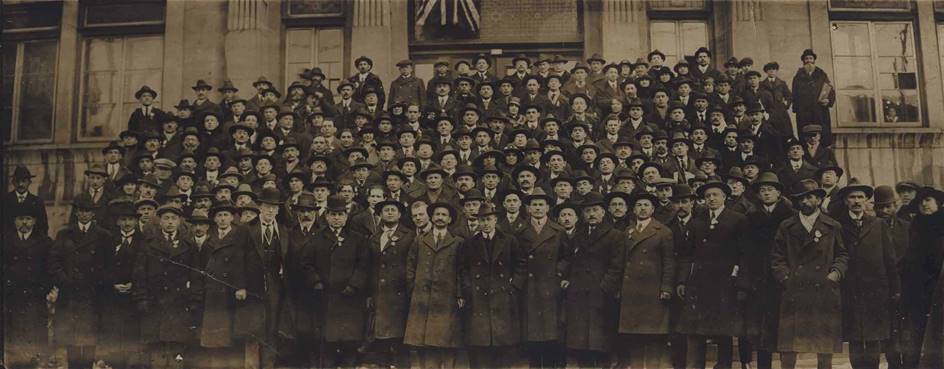
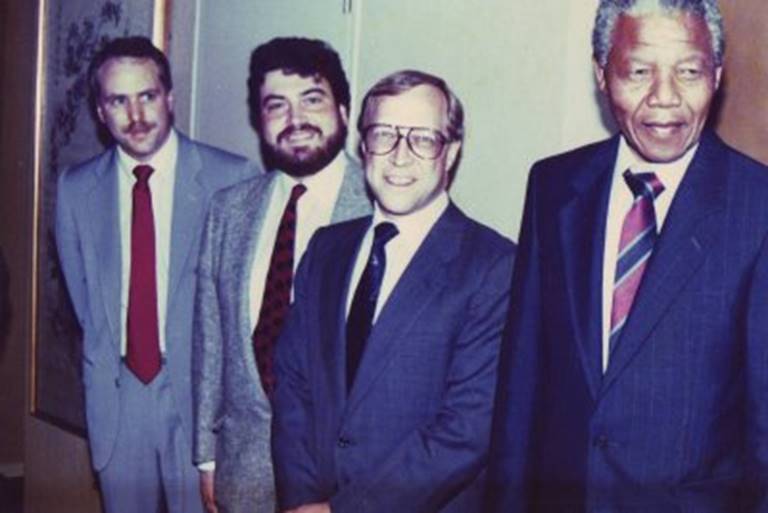
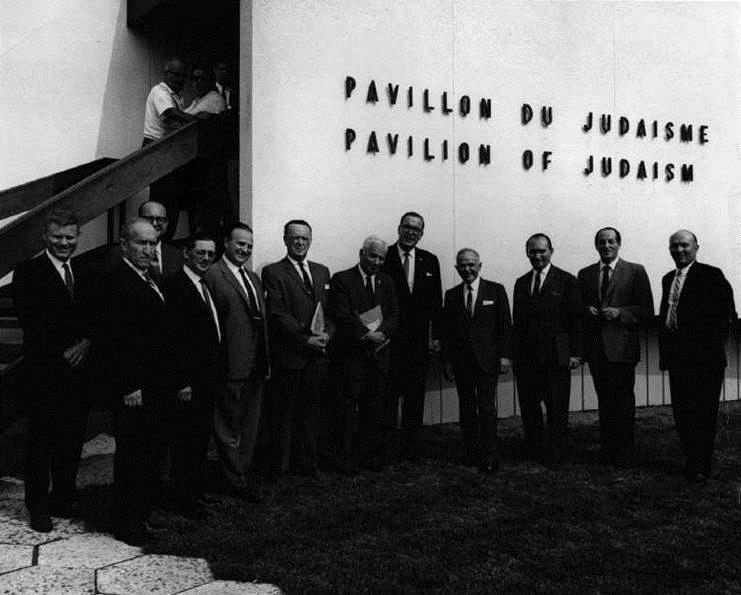
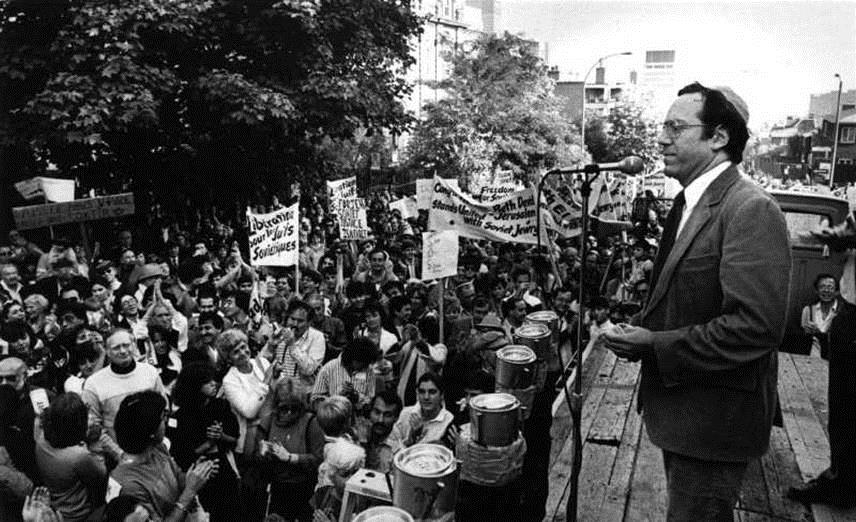
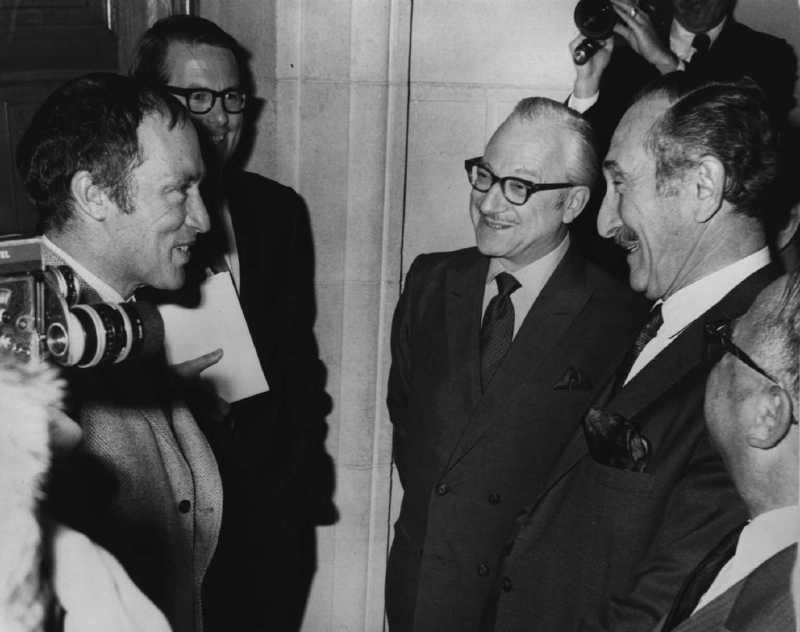
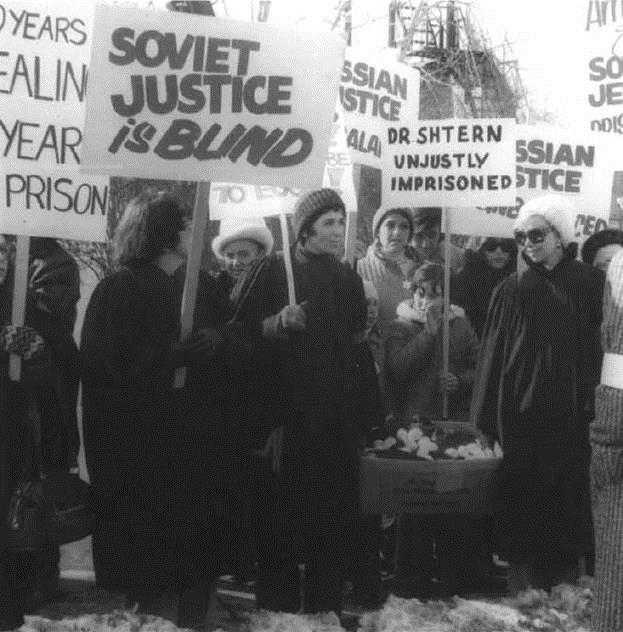
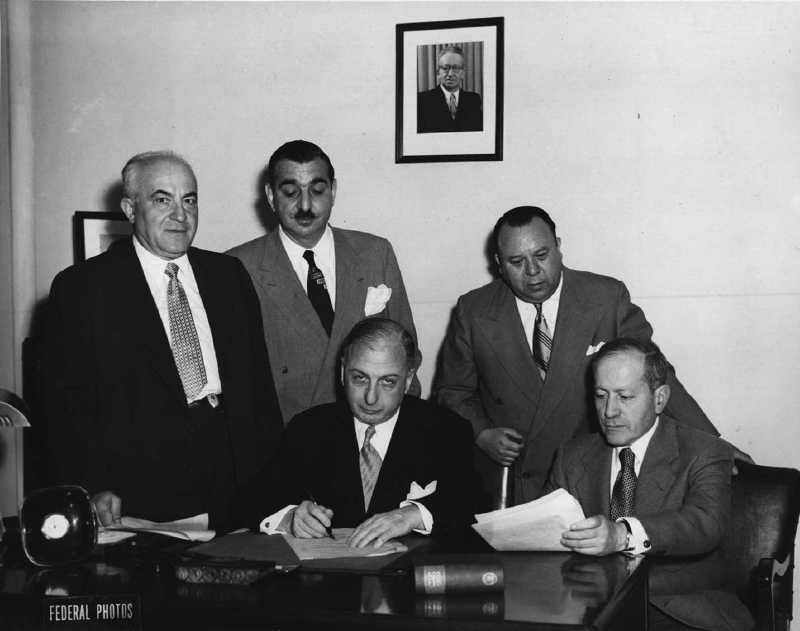
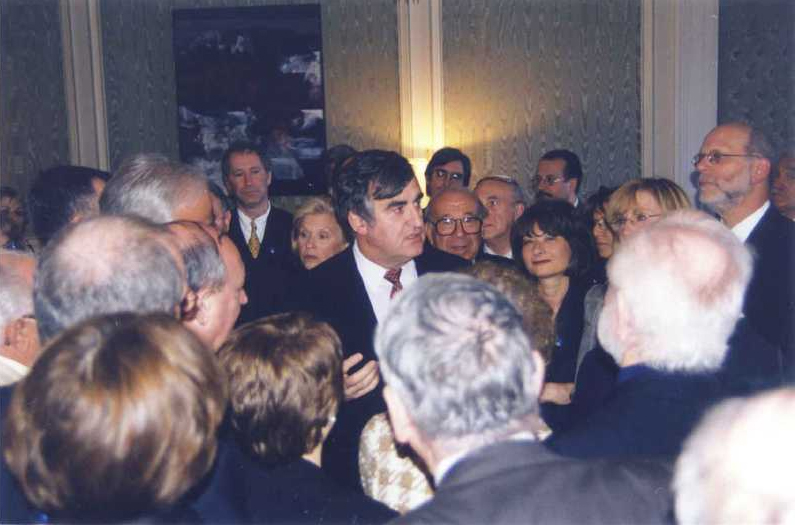
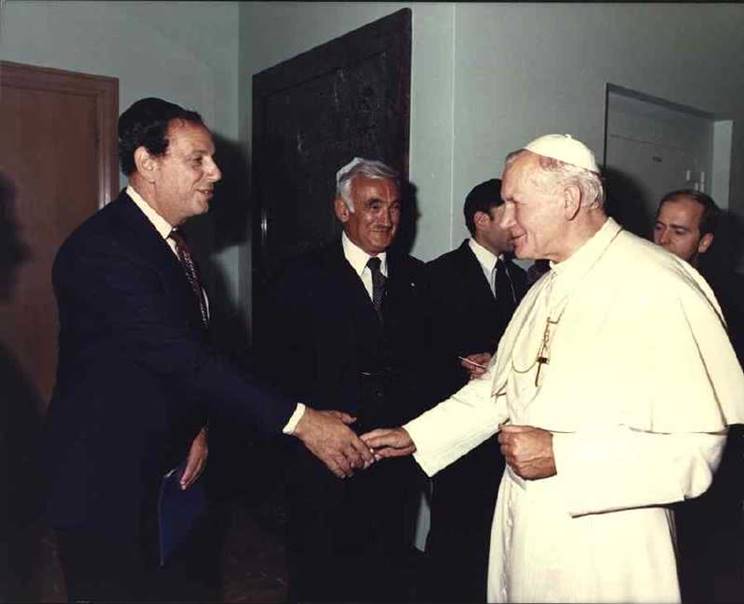
The Canadian Jewish Congress, the first democratically-elected representative body for Canadian Jewry, was founded in Montreal in 1919.
The Canadian Jewish Congress, the first democratically-elected representative body for Canadian Jewry, was founded in Montreal in 1919.
Initially, the breadth of the Canadian nation made national organization of the Jewish community difficult. For years, the only national body was the Federation of Canadian Zionists, whose leaders were nominated in the Central European fashion. But World War I, the devastation in Europe, the vast refugee problem and the increasing arrival of Eastern European Jews to Canada spurred the creation of a new national body. To reflect the growing democracy of the new immigrants, the Canadian Jewish Congress, composed of elected officials, set out to represent all of Canadian Jewry on its major political, national and international affairs. As many of the founding organizers were part of the left-leaning Po’alei Zion (Labour Zionism), CJC attempted to satisfy all the different elements of the community. Its first general secretary was Hannaniah Meir Caiserman, a Romanian-born tailor and labour organizer, who held that position until his death in 1950.
Among the longest serving Executive Directors was Saul Hayes, who held the position from 1940 to 1959. Hayes transformed the CJC umbrella organization into a formative lobby group. Working alongside Congress President Samuel Bronfman, he had political connections and public speaking skills that made him invaluable to the CJC Committee for Refugees in the 1930s. The plight of Jews under Nazi rule drew him to a career in which he would fight tirelessly on behalf of the Jewish community. Hayes was active in many lobbying efforts during his campaign to challenge Canada’s restrictive wartime immigration policies. One such delegation appealed to F. C. Blair, Ottawa’s seemingly obscure, but powerful, director of the Immigration Branch of the Department of Mines and Resources, to reverse policies preventing German Jewish refugees from coming to Canada. With the assistance of community leaders Hirsch Wolofsky, editor of the Keneder Adler (Montreal’s Yiddish daily), Peter Bercovitch, honorary President of the Federation of Polish Jews and a Member of Parliament, and fellow CJC leader Michael Garber, the delegation gained admission for 130 Jews. Unfortunately, the group was unable to shift federal policy further: Canada accepted fewer than 5,000 Jewish refugees from 1933 to 1948 – less than any other Western country.
Known as “Mr. Canadian Jewish Congress,” Hayes was an important ambassador for Canadian Jews to Ottawa. Under the leadership of the Bronfman-Hayes team, the CJC became the unchallenged parliament of Canadian Jewry, working to persuade the government to permit greater integration of Jewish refugees. Hayes was instrumental in Congress’s anti-defamation work, particularly concerning the Social Credit political party, which not only disseminated the Protocols of the Elders of Zion, a work of anti-Semitic propaganda, but whose leaders periodically injected allusions to Nazi discourse into their 1940s political campaigns.
Hayes represented Canadian Jewry at meetings of the World Jewish Congress, the San Francisco Conference on International Security in 1945, the Paris Conference on Peace Treaties in 1946, and at the United Nations Relief and Rehabilitation Agency, where he advocated for victims of war-torn Europe. In the latter capacity, Hayes became the first delegate to represent world Jewry before an international body since the 1919 Versailles Conference. The Saul Hayes Human Rights Award, established by the Canadian Jewish Congress, recognized individuals making significant contributions in the field of human rights.
Other notable members of the CJC include Presidents Lyon Cohen; Samuel William Jacobs; Monroe Abbey; Irwin Cotler; Dorothy Reitman; Irving Abella; Reuven Bulka; Sylvain Abitbol; and Samuel Bronfman, who sat from 1939 to 1962, making him the longest-serving President in its history.
CJC remained the national organization of Canadian Jews for many years – lobbying for, and defending, their rights. For instance, it launched pressure campaigns in an effort to allow Jewish emigration from the Soviet Union. In 2007, it became an organ of the Canadian Council for Israel and Jewish Affairs, and in 2011, it was officially disbanded.
Learn more:
http://imjm.ca/location/2328
http://www.cjhn.ca/en/permalink/cjhn189
http://archives.concordia.ca/hayes

